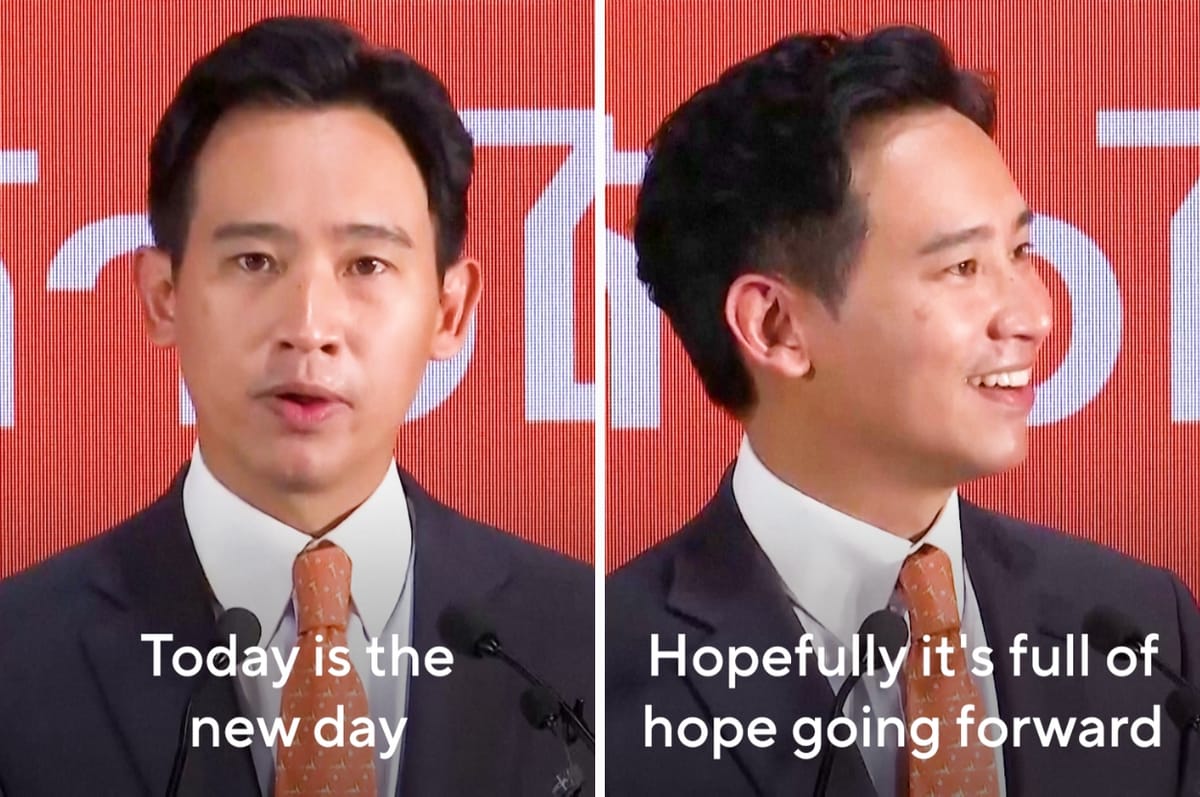People In Thailand Have Voted Out The Military Government And Elected A Young, Progressive Party To Lead
Thailand had been ruled by a military government since it ousted the democratically elected government in a coup in 2014.

People in Thailand have voted out the military government and elected a young, progressive party to lead.
Thailand has been ruled by a military government since it ousted the democratically elected government in a coup in 2014.
But in a stunning moment on Sunday May 14, Move Forward, a young and progressive opposition party, secured 36.23% of the votes, the most out of any party in the general elections.
Frontrunner Pheu Thai, Thailand’s largest opposition party – founded by former prime minister Thaksin Shinawatra, who was ousted in another coup in 2006 – came second with 27.66% of the votes.
Former junta leader and incumbent prime minister Prayut Chan-o-cha’s military United Thai Nation party secured only 11.90% of the votes.
Voter turn out was a record 75.20%.
Move Forward, led by 42-year-old Pita Limjaroenrat, had run on a campaign of promoting democracy, removing the military’s influence on politics and revising the lèse-majest law, which jails people for criticizing the monarchy.
In Thailand, the lèse-majesté law makes it illegal to insult, defame or threaten the king, the queen and other members of the royal family, and sentences range from three to 15 years in prison.
More and more activist have been accused of “insulting” the monarchy in Thailand, since King Maha Vajiralongkorn became the ruling monarch in 2019.
Activists have criticized the expenses of the royal family and the country’s use of the military to maintain the monarchy’s power.
According to human rights groups in Thailand, members of the royal family have used the lèse-majesté law to accuse around 210 activists since November 2020.
As neither Move Forward and Pheu Thai gained enough seats in the parliament to form a majority, both parties said on Monday May 15 that they had agreed to form a coalition government with other opposition parties.
However, it is not certain whether Pita will become the new prime minister.
In Thailand, the prime minister is selected by the full National Assembly.
This includes members of the House of Representatives, who were elected on May 14, and the senate, which is currently comprised of unelected, military-appointed members.
There are concerns that the senate could block Pita’s nomination for prime minister during the vote, which is due to happen in July.





